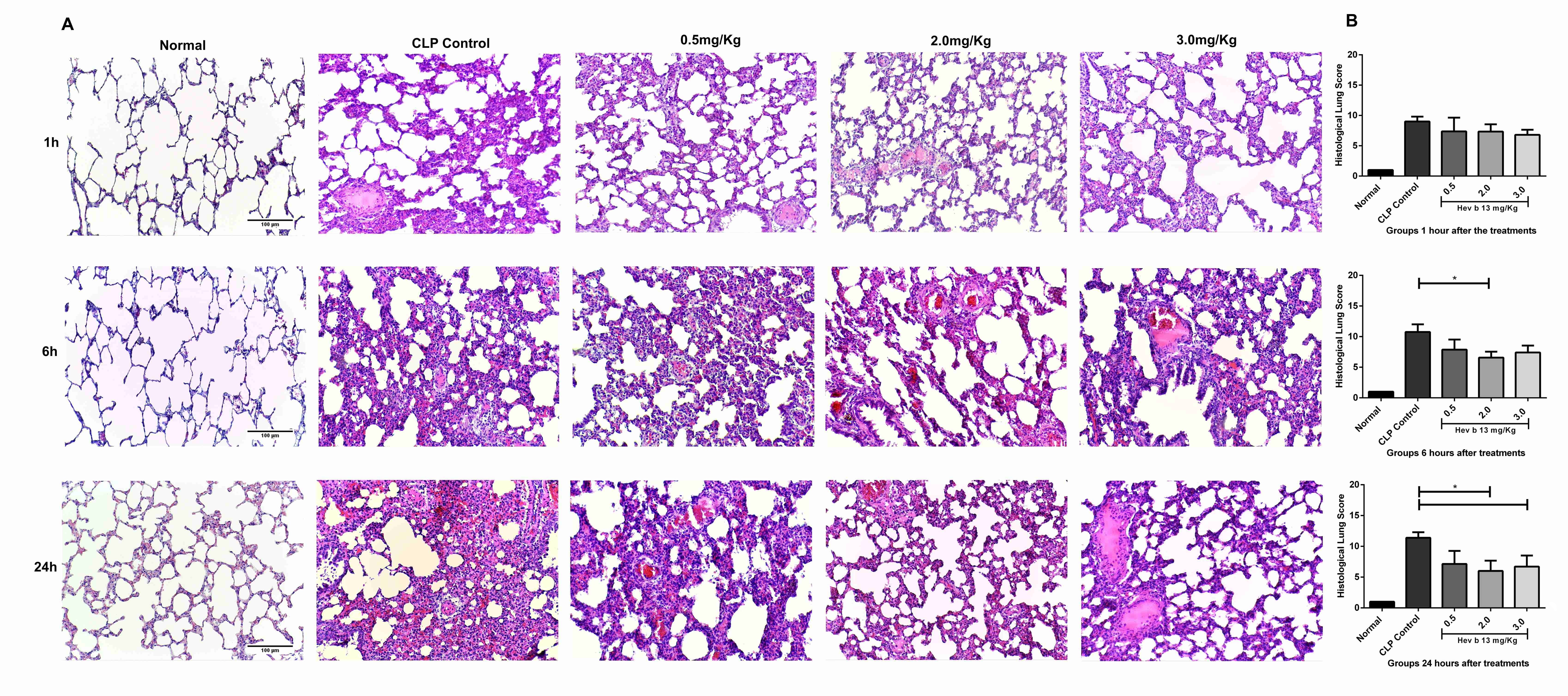Abstract
Sepsis induces a severe systemic inflammatory response that may result in multiple organ dysfunction and death. Studies using a protein derived from natural Hevea brasiliensis (rubber tree) latex, denominated Hev b 13, have demonstrated important anti-inflammatory effects, but no data have been published regarding its effects on sepsis. The aim of this study was to investigate the effects of Hev b 13 on the inflammatory response and lung lesions of septal rats. Male Wistar rats were submitted to cecal ligation and puncture (CLP), randomized into groups and treated with subcutaneously administered doses of 0.5/2.0/3.0 mg/Kg of Hev b 13. Next, animals were subdivided into three different points in time (1, 6 and 24 hours after treatments) for collection of blood samples and euthanasia accompanied by organ removal. Total and differential leukocyte counts, cytokine dosage and histological assessment were analyzed. Treatment with Hev b 13 resulted in a significant decline in total and differential leukocytes as well as suppression of TNF-α and IL-6 production, associated with the increase in IL-10 and IL-4 in plasma and lung tissue. Moreover, it reduced morphological and pathological changes found in the lungs, including neutrophil infiltration, edema and alveolar thickening. The present study concluded that Hev b 13 exerts anti-inflammatory effects and attenuates lung lesions in septal rats, showing potential for clinical application.
Keywords:
Hev b 13; Hevea brasiliensis; inflammatory response; sepsis

 Thumbnail
Thumbnail
 Thumbnail
Thumbnail
 Thumbnail
Thumbnail


